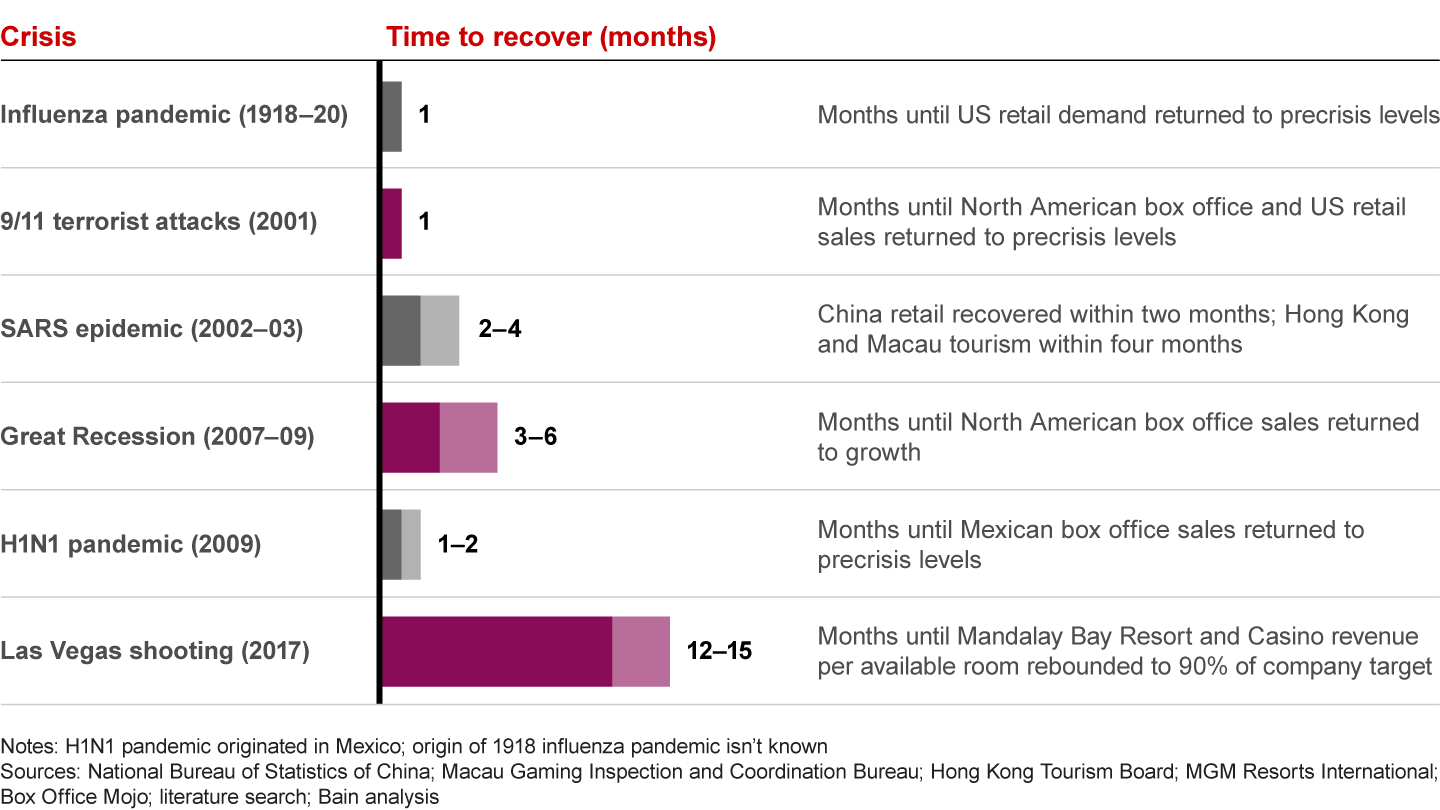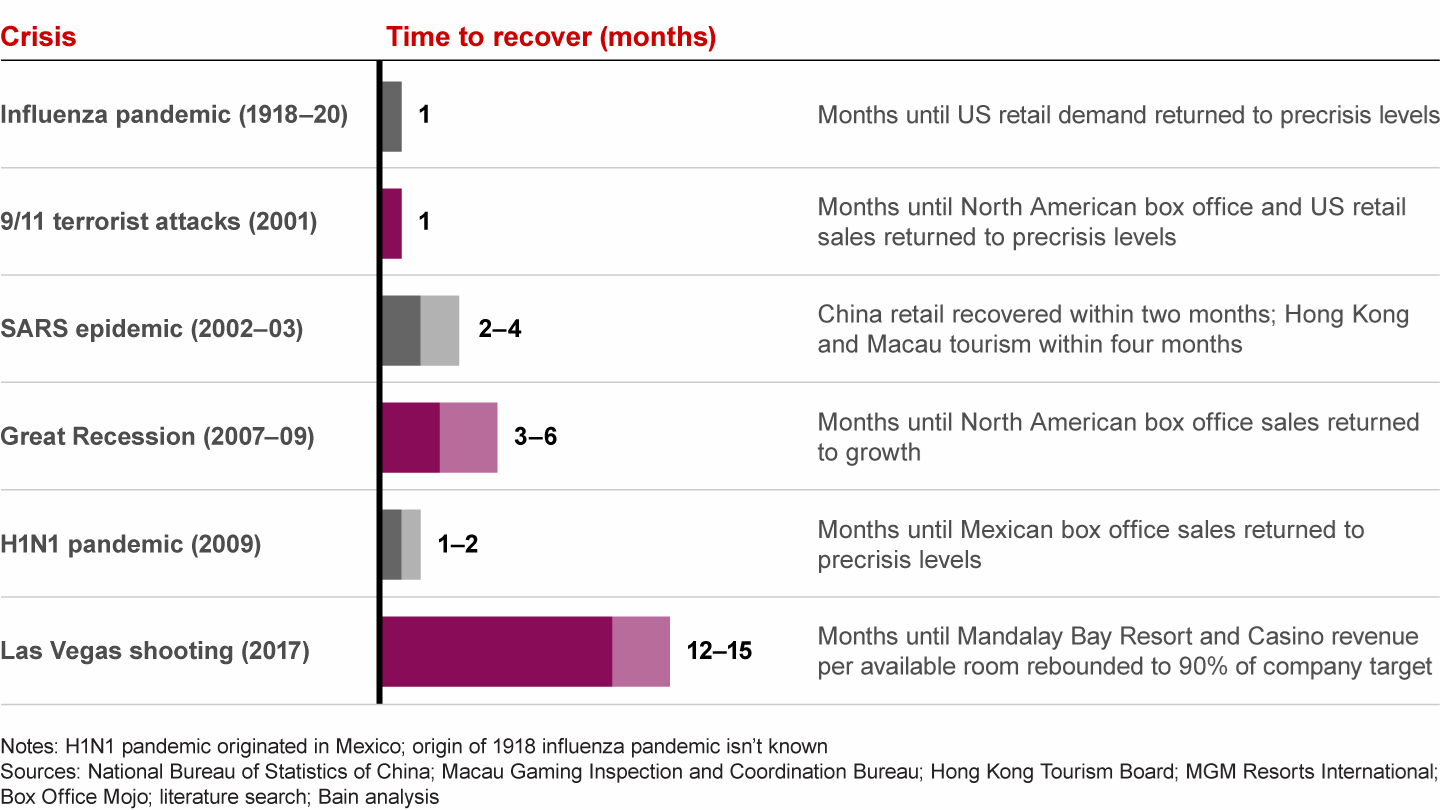Brief

Executive Summary
- The coronavirus lockdown means people can’t participate in location-driven experiences, but consumer demand should rebound when things stabilize.
- Location-based entertainment providers can increase resilience if they connect with consumers, give them a reason to return, and use technology to reduce risk at their premises and improve the guest experience.
- As companies adopt more digital experience tools, investing in data and consumer analytics capabilities will set them apart.
Theme parks, movie theaters, casinos and other location-based entertainment providers face exceptional challenges during the Covid-19 crisis. Their businesses require onsite customers, and in the short term, that’s not possible in many places around the world.
However, the fundamental value proposition of location-based entertainment hasn’t changed. For most industries, demand should return when the economy stabilizes and people feel safe and comfortable interacting in public again. Bain & Company analysis of prior dips in consumer demand for location-based businesses shows that spending on experiences and retail rebounds quickly (see Figure 1).


The key to recapturing demand is investing for the future. Right now, location-based entertainment providers are focusing first and foremost on ensuring the health and safety of their employees, with cash management a second priority. But the way they use their limited resources during this downturn will determine how they fare coming out of it. Those that stay engaged with consumers, provide compelling reasons for them to return, deploy technology to mitigate health risks and use data analytics to address customer needs will put themselves in the strongest position.

Macro Surveillance Platform
For more detail on the business implications of coronavirus from Bain’s Macro Trends Group, log on to the Macro Surveillance Platform. Learn more about the platform >
Sustain consumer engagement
Although consumers under lockdown aren’t visiting entertainment venues and other location-based businesses, this is the time to maintain connections with those feeling isolated. Engaging with customers now will help companies stay top of mind and understand what people will need when distancing measures are lifted (e.g., health reassurances, pricing flexibility). With limited resources for outreach, location-based entertainment providers can focus on staying connected with high-value customers (e.g., annual pass holders, VIP guests) and consumers living nearby, who are most likely to return when restrictions ease but travel is still infrequent.
Additionally, there may be opportunities to create in-home consumer experiences that provide short-term revenue streams during the lockdown. For example, virtual reality and online “tours” can deliver on-brand experiences to delight consumers in isolation. Also, mobile applications can enable consumers to engage with company content off-premises (think branded casino games).
Make prudent investments to attract customers
The most critical thing for location-based entertainment providers in this moment is to stay afloat, and many have implemented drastic cash-conservation measures, including furloughs, pay cuts and layoffs. Protecting cash will remain crucial in the months ahead, so it’s logical to press pause on planned capital expenditures and delay new attraction launches until demand has rebounded.
But as companies plan how to maximize their eventual return to business, the leaders will invest strategically in innovations and prepare for a slow ramp-up of future investments to bring people through the (risk-mitigated) doors. In doing so, they will prioritize investments likely to attract their most valuable customer segments.
Upgraded experiences provide a natural marketing hook to bring consumers back. This might include new food and beverage offerings across entertainment venues, hotel room refreshes, new theme park events, upgraded movie theater seating, or additional electronic table games in casinos. If a business’s cash reserves allow, this is also an opportune time to accelerate previously planned customer-facing renovation and maintenance projects that will add to the overall experience and reduce disruption when consumers are back on the premises.
Businesses that cannot afford large cash investments right now might be able to create new or refreshed offerings using existing resources.
The bottom line: Leading location-based entertainment providers will use this time to take stock of their market position and potential suite of products and services, consider consumer feedback, and plan new experiences to attract people once distancing measures relax.
Use technology to mitigate health risks and better serve customers
When demand for location-based entertainment returns, consumers deserve (and will want) to feel safe. Companies can invest in digital enablers to maximize safety and improve the guest experience over the long term. Investments to consider include:
- Touchless technology: Automatic doors (including mobile unlocking for restricted areas and hotel rooms), digital ticketing and ordering systems, and other measures that shift activities to a personal device can decrease physical touching in venues and improve the guest experience.
- Physical-distancing enablers: Location-based entertainment providers know where their bottlenecks occur. Providing mobile-communicated arrival times and virtual queues for entry, rides, restaurants, seats and even elevators can segment guests and support physical distancing, as well as decrease lines.
- Temperature checks: Forehead thermometers for checking the temperature of employees and guests before entering confined spaces such as movie theaters, arenas or theme parks can limit exposure to people who might have the virus. Although this may feel extreme, consider that metal detectors once seemed that way, and they are now present at many venues.
Investing in these tools takes time, and setting things up to effectively minimize viral transmission may mean that your venue isn’t the first to reopen when distancing measures are lifted. The goal with these investments is not to reopen as quickly as possible, but to do so when guests are assured of their safety, and to prime the business for long-term success.
In addition to voluntary measures, location-based entertainment providers can proactively shape regulatory measures by working with local governments and medical organizations to suggest short-term industry standards. Companies can contribute their knowledge of consumer behavior patterns in planning to mitigate possible health risks. This will also enable them to better anticipate the timing and extent of business restrictions, and more effectively predict cash flows.
Design customer analytics for the future
Leading location-based entertainment providers will use this time to allocate resources to data management and advanced analytics, deploying these tools to maximize responsiveness to customer needs and behavior patterns. Leaders will also set up systems and teams now to take full advantage of future data streams enabled by digital investments (e.g., touchless technology). Those that can quickly turn data into insights will be poised to serve consumers effectively and deliver the experience at a lower cost.
Location-based entertainment businesses are facing significant challenges. But demand for live experiences will return―perhaps stronger than ever―when we emerge from the crisis. Companies that plan now to mitigate health risks, sustain consumer engagement and invest prudently will increase their resilience and ability to serve customers over the long term.

Coronavirus
The global Covid-19 pandemic has extracted a terrible human toll and spurred sweeping changes in the world economy. Across industries, executives have begun reassessing their strategies and repositioning their companies to thrive now and in the world beyond coronavirus.